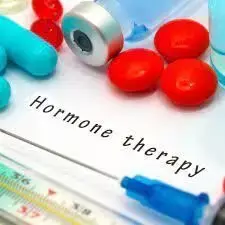- Home
- Medical news & Guidelines
- Anesthesiology
- Cardiology and CTVS
- Critical Care
- Dentistry
- Dermatology
- Diabetes and Endocrinology
- ENT
- Gastroenterology
- Medicine
- Nephrology
- Neurology
- Obstretics-Gynaecology
- Oncology
- Ophthalmology
- Orthopaedics
- Pediatrics-Neonatology
- Psychiatry
- Pulmonology
- Radiology
- Surgery
- Urology
- Laboratory Medicine
- Diet
- Nursing
- Paramedical
- Physiotherapy
- Health news
- Fact Check
- Bone Health Fact Check
- Brain Health Fact Check
- Cancer Related Fact Check
- Child Care Fact Check
- Dental and oral health fact check
- Diabetes and metabolic health fact check
- Diet and Nutrition Fact Check
- Eye and ENT Care Fact Check
- Fitness fact check
- Gut health fact check
- Heart health fact check
- Kidney health fact check
- Medical education fact check
- Men's health fact check
- Respiratory fact check
- Skin and hair care fact check
- Vaccine and Immunization fact check
- Women's health fact check
- AYUSH
- State News
- Andaman and Nicobar Islands
- Andhra Pradesh
- Arunachal Pradesh
- Assam
- Bihar
- Chandigarh
- Chattisgarh
- Dadra and Nagar Haveli
- Daman and Diu
- Delhi
- Goa
- Gujarat
- Haryana
- Himachal Pradesh
- Jammu & Kashmir
- Jharkhand
- Karnataka
- Kerala
- Ladakh
- Lakshadweep
- Madhya Pradesh
- Maharashtra
- Manipur
- Meghalaya
- Mizoram
- Nagaland
- Odisha
- Puducherry
- Punjab
- Rajasthan
- Sikkim
- Tamil Nadu
- Telangana
- Tripura
- Uttar Pradesh
- Uttrakhand
- West Bengal
- Medical Education
- Industry
Menopausal hormonal therapy does not increase CVD and diabetes risk in middle aged women: Study

Menopausal hormone therapy (MHT) does not impact the risks for cardiovascular diseases (CVD) and type-2 diabetes mellitus (DM2) in middle-aged women, according to a recent study published in Menopause.
Although menopausal hormone therapy (MHT) is the most effective treatment for menopausal symptoms, menopausal women hesitate to start MHT due to concerns about adverse events. Recently, however, it has been recommended to use it for appropriate patients who have been evaluated for baseline diseases, age, and timing of initiation. We aimed to investigate the association of MHT with cardiovascular diseases (CVDs) and type 2 diabetes among middle-aged postmenopausal women in Korea.
Data were collected from the National Health Insurance Service database in Korea from 2002 to 2016. A total of 58,060 postmenopausal women (including 8,013 [13.8%] MHT users and 50,047 [86.2%] nonusers) were included. The time-dependent Cox regression model with a 1-year latency period was used to evaluate the hazard ratio (HR) and 95% confidence interval (CI) of the associations of MHT with CVDs and type 2 diabetes outcomes. Subgroup analyses by regimen type and cumulative duration were conducted.
The Results of the study are as follows:
- In the multivariate-adjusted model, MHT was not significantly associated with CVDs (HR = 1.085, 95% CI: 0.899-1.310) or type 2 diabetes (HR = 1.104, 95% CI: 0.998-1.221).
- Differential effects were not observed by regimen type, cumulative duration, and years since menopause subgroups.
- Sensitivity analyses also did not show adverse events by MHT on CVDs and type 2 diabetes.
Thus, the researchers concluded that although protective effects of MHT against CVDs or type 2 diabetes were not observed among postmenopausal women who had screened underlying diseases, our results may contribute to reducing the current concerns about the use of MHT for middle-aged postmenopausal women in Korea.
Reference:
Effects of menopausal hormone therapy on cardiovascular diseases and type 2 diabetes in middle-aged postmenopausal women: analysis of the Korea National Health Insurance Service Database by Kim, Ji-Eun et al. published in the Menopause.
doi: 10.1097/GME.0000000000001848
Dr. Shravani Dali has completed her BDS from Pravara institute of medical sciences, loni. Following which she extensively worked in the healthcare sector for 2+ years. She has been actively involved in writing blogs in field of health and wellness. Currently she is pursuing her Masters of public health-health administration from Tata institute of social sciences. She can be contacted at editorial@medicaldialogues.in.
Dr Kamal Kant Kohli-MBBS, DTCD- a chest specialist with more than 30 years of practice and a flair for writing clinical articles, Dr Kamal Kant Kohli joined Medical Dialogues as a Chief Editor of Medical News. Besides writing articles, as an editor, he proofreads and verifies all the medical content published on Medical Dialogues including those coming from journals, studies,medical conferences,guidelines etc. Email: drkohli@medicaldialogues.in. Contact no. 011-43720751


